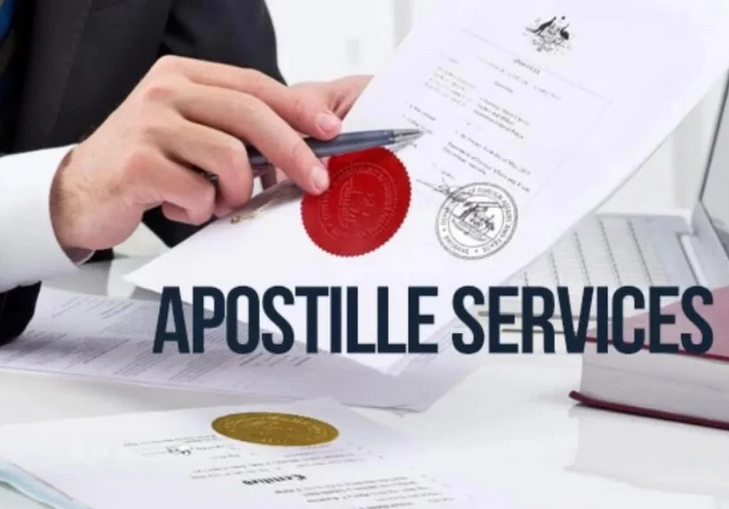Delving Into the Factors Behind the Compulsory Requirement of Apostille Qualification for Legal Papers
In the realm of legal paperwork, the compulsory demand of apostille accreditation has ended up being a vital element that substantially affects the credibility and recognition of legal documents on a global range. Comprehending the rationale behind this requirement involves delving right into the complex web of lawful intricacies, historic precedents, and global arrangements that emphasize the value of apostille accreditation in today's interconnected world. By checking out the underlying reasons behind this prevalent demand, a clearer image arises of why this seemingly governmental process holds such immense value for organizations, people, and federal governments alike.
Historic Development of Apostille Certification
How did the idea of apostille qualification advance over time to become a necessary component of international file recognition? The demand for a streamlined approach of validating files for usage throughout boundaries came to be apparent as worldwide trade and travel boosted.
Originally taken on by a couple of European countries, the Apostille Convention gradually gained global acceptance as a result of its efficiency and effectiveness in verifying the legitimacy of official papers. Throughout the years, the convention's reach broadened as more countries joined, recognizing the apostille as a generally approved type of paper verification. Today, apostille accreditation has actually become a basic requirement for validating legal papers in global purchases, making certain smooth interaction and lawful proceedings in between nations.
Simplifying International Record Legalization
The streamlining of global file legalisation procedures has dramatically improved performance in cross-border transactions. Simplifying the procedure of legislating documents for worldwide usage has ended up being essential in assisting in swift and smooth transactions between nations. Among the vital systems that have actually added to this simplification is the adoption of the Apostille Convention, which offers a standardized technique for validating the credibility of documents throughout participating nations.
By adhering to the Apostille demands, countries consent to identify each various other's public files as valid without the need for additional legalization. This gets rid of the prolonged and usually cumbersome process of multiple authentications by different authorities, saving time and sources for individuals and businesses taken part in international activities.

Making Certain File Authenticity and Validity
To ensure the credibility and credibility of legal records in global deals, stringent verification procedures are essential - Houston Apostille. Lawful papers play an essential duty in cross-border negotiations, and ensuring their authenticity is extremely important to maintain the integrity of such purchases. By needing apostille certification for lawful papers, authorities intend to verify the origin of records and confirm the signatures of people involved. This procedure helps stop fraud, misstatement, and various check this other negligences that could threaten lawful procedures or worldwide arrangements.
In addition, verifying the authenticity of lawful records through apostille accreditation improves trust and confidence among events involving in international deals. It supplies guarantee that the documents provided are real and legally binding, thus minimizing the threats connected with fraudulent activities. Furthermore, making certain paper legitimacy via apostille accreditation streamlines the legalization process, making it much more effective and trustworthy for organizations and individuals conducting company across borders. Inevitably, by supporting rigorous verification requirements, apostille certification contributes to an extra clear and safe and secure international legal structure.

Assisting In Cross-Border Legal Recognition
In the realm of international deals, the apostille accreditation not only ensures the authenticity and legitimacy of lawful files but additionally plays an essential function in helping with cross-border legal recognition (Houston Apostille). When lawful documents bear an apostille certification, they are conveniently approved by foreign authorities without the need for more verification. This streamlined procedure quickens the acknowledgment of papers in different nations, promoting performance and minimizing administrative hurdles in lawful matters that go beyond national borders
Facilitating cross-border lawful recognition via apostille accreditation cultivates depend on and confidence in the credibility of documents traded between countries. This acknowledgment is particularly crucial in situations such as international service transactions, adoption procedures, or legal proceedings entailing parties from various territories. By adhering to the criteria set forth by the Apostille Convention, countries consent to honor the apostille seals fastened to papers from various other member nations, hence simplifying the process of lawful recognition across boundaries. Inevitably, the apostille accreditation functions as a fundamental tool in advertising smooth international legal visite site teamwork and making certain the smooth operation of cross-border deals.
Compliance With International Treaty Requirements
Compliance with international treaty standards is imperative for ensuring the uniform application of legal policies across taking part countries. The Apostille Convention, developed in 1961, lays out the needs for the approval of public papers amongst participant countries. By adhering to the standards set forth in this treaty, countries devote to identifying the legitimacy of each various other's certification without the requirement for further authentication - Houston Apostille. This common acceptance streamlines the procedure of cross-border paper recognition, promoting effectiveness and decreasing administrative hurdles.
The Apostille accreditation, as mandated by the treaty, works as an assurance of credibility for records such as birth certifications, marital relationship licenses, court judgments, and notarized actions. This standard technique assists prevent scams and ensures that lawful papers stemming from one member country are easily accepted in an additional. Furthermore, by following worldwide treaty criteria, nations demonstrate their dedication to upholding the principles of openness, depend on, and collaboration in lawful issues on a worldwide range.
Conclusion

In the realm of legal paperwork, the mandatory requirement of apostille accreditation has actually ended up being an essential element that dramatically influences the validity and recognition of legal papers on a worldwide range. Today, apostille qualification has actually come to be a basic demand for verifying lawful documents in worldwide deals, making certain smooth interaction and lawful process between nations.
Moreover, verifying the authenticity of legal documents through apostille certification enhances count on and confidence among celebrations engaging in international transactions.In the realm of global purchases, the apostille qualification not just makes sure the credibility and credibility of legal files but also plays a pivotal duty in promoting cross-border lawful recognition. By adhering to the standards established forth by the Apostille Convention, nations concur to recognize the apostille seals attached to files from other participant nations, therefore simplifying the procedure of legal recognition across boundaries.